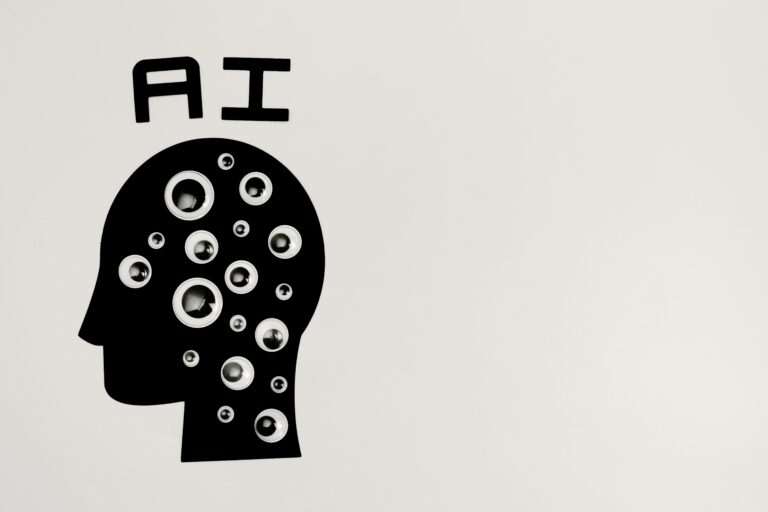
The real estate industry has undergone a massive transformation over the past decade, and 2025 is proving to be the tipping point where artificial intelligence (AI) is replacing traditional real estate agents at an unprecedented rate. What once seemed like a human-dominated field—full of negotiations, property showings, and client relationships—is now increasingly driven by AI-powered tools that streamline the home-buying and selling process.
While some argue that AI will never fully replace the personal touch of real estate agents, there’s no denying that automation, machine learning, and predictive analytics are reshaping the industry. From AI-driven property searches to automated negotiations, let’s explore how AI is taking over the role of real estate agents and what this means for the future of the industry.
The Rise of AI in Real Estate
AI has already been making waves in real estate for several years, but 2025 is seeing a major acceleration in its adoption. The rapid advancement of machine learning, natural language processing, and predictive analytics has enabled AI systems to perform tasks that once required human expertise.
Here are some of the biggest ways AI is reshaping the real estate landscape:
-
AI-Powered Property Search and Recommendations
Traditional home searches involved hours of browsing through listings, consulting with agents, and visiting properties. Now, AI-powered platforms can instantly match buyers with properties that fit their exact preferences.
- Personalized Recommendations: AI algorithms analyze a buyer’s search history, budget, and lifestyle preferences to suggest homes that match their needs.
- Predictive Analytics: AI can predict which properties are likely to increase in value, helping buyers make informed investment decisions.
- Chatbots and Virtual Assistants: AI chatbots provide instant answers to buyers’ questions, schedule viewings, and even conduct virtual property tours.
-
Virtual Property Tours and AI-Generated Listings
The need for in-person property showings is rapidly diminishing thanks to AI-powered virtual tours.
- AI-Generated 3D Tours: Advanced AI can create realistic 3D models of homes, allowing buyers to explore properties without leaving their homes.
- AI-Enhanced Listings: AI automatically generates detailed property descriptions, highlights key features, and even edits listing photos to enhance visual appeal.
- Voice-Activated Property Search: Buyers can simply ask their smart devices to find homes that match their criteria, making home searching more intuitive.
-
AI-Driven Pricing and Market Analysis
One of the biggest roles of a real estate agent has been pricing homes accurately. AI is now outperforming agents in this area.
- Instant Property Valuations: AI-powered valuation tools analyze market trends, recent sales, and property conditions to provide accurate home price estimates.
- Dynamic Pricing Models: AI continuously updates property prices in real time based on market demand, helping sellers maximize profits.
- Investment Insights: AI identifies undervalued properties and predicts future price appreciation, making real estate investing easier for individuals.
-
AI-Powered Negotiations and Transactions
Negotiating the best price has traditionally been a job for skilled agents, but AI is now taking over this role.
- AI Chatbots Handling Offers: Buyers and sellers can use AI-powered chatbots to submit offers, counteroffers, and negotiate terms.
- Smart Contracts and Blockchain Integration: AI-powered smart contracts automatically verify documents, handle escrow, and process payments securely.
- AI Legal Assistance: AI reviews contracts, detects potential legal issues, and ensures compliance with local real estate laws.
-
AI in Property Management and Rentals
AI isn’t just transforming home sales—it’s also revolutionizing property management and the rental market.
- AI Landlords: AI-powered property management systems handle tenant screenings, rent collection, and maintenance requests without human intervention.
- Automated Lease Agreements: AI generates legally binding lease contracts, reducing paperwork and speeding up the rental process.
- Predictive Maintenance: AI detects potential maintenance issues before they become costly repairs, keeping properties in top condition.
The Advantages of AI Over Human Agents
With AI handling so many aspects of real estate transactions, it’s easy to see why buyers and sellers are opting for AI-driven solutions over traditional agents. Here’s why AI is becoming the preferred choice:
-
Cost Savings
Real estate commissions can be expensive, often ranging from 5% to 6% of the home’s sale price. AI-driven platforms are eliminating the need for high commission fees, making home transactions more affordable for both buyers and sellers.
-
Speed and Efficiency
AI can process vast amounts of data in seconds, providing instant recommendations, valuations, and contract approvals. This drastically reduces the time it takes to buy or sell a home.
-
24/7 Availability
Unlike human agents, AI never sleeps. Buyers and sellers can access AI-driven real estate services anytime, making the process more convenient.
-
Data-Driven Decision Making
AI analyzes millions of data points to provide accurate predictions, reducing the risks associated with buying or selling property.
-
Reduced Human Error
AI ensures accuracy in pricing, legal documentation, and transactions, minimizing costly mistakes that human agents might make.
Will AI Completely Replace Real Estate Agents?
Despite AI’s rapid advancements, some aspects of real estate still require a human touch. Here’s why human agents may still have a role:
-
Emotional Connection and Trust
Buying or selling a home is an emotional experience, and many people prefer working with a real person who understands their concerns and provides reassurance. AI may lack the empathy needed to build strong client relationships.
-
Complex Negotiations
While AI can handle simple negotiations, high-stakes deals with unique terms may still require a human agent’s expertise.
-
Handling Unpredictable Situations
AI works best with structured data, but real estate transactions can be unpredictable. Unexpected issues—such as a buyer backing out at the last minute—may require human problem-solving skills.
-
Legal and Ethical Considerations
AI can assist with contracts, but legal complexities often require a lawyer or experienced agent to ensure compliance.
-
Personalized Service
Some buyers and sellers still value the personalized guidance that a human agent provides, especially for luxury or unique properties.
The Future of AI in Real Estate
By 2025, AI is replacing many traditional real estate functions, but it’s unlikely to eliminate human agents entirely. Instead, the industry is shifting toward a hybrid model, where AI handles most of the data-driven tasks while human agents focus on relationship-building and complex negotiations.
What This Means for Real Estate Professionals
Real estate agents who adapt to AI technology will remain relevant. Agents who leverage AI tools can provide faster, more efficient services while focusing on the personal aspects of real estate that AI can’t replicate.
The Rise of AI-Powered Real Estate Platforms
Companies like Zillow, Redfin, and Opendoor are already investing heavily in AI-driven solutions, and new startups are emerging that offer AI-only real estate transactions. The future of real estate will likely be dominated by AI-powered platforms that minimize the need for human agents.
Should Buyers and Sellers Trust AI?
As AI technology improves, trust in AI-driven real estate services is growing. However, transparency and regulation will be key to ensuring that AI operates ethically and fairly.

AI will revolutionize the real estate industry in 2025, replacing many of the tasks traditionally performed by real estate agents. From AI-powered home searches and virtual tours to automated negotiations and smart contracts, the role of human agents is shrinking.
While AI offers cost savings, speed, and efficiency, human agents still provide valuable emotional support, problem-solving skills, and negotiation expertise. The future of real estate is a blend of AI automation and human expertise, where tech-savvy agents who embrace AI will thrive, and traditional agents who resist change may struggle to compete.
As AI continues to evolve, one thing is certain: the real estate industry will never be the same again.




